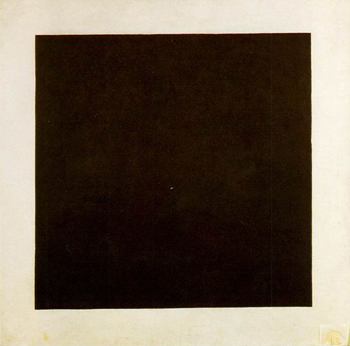everything is going away from us
“‘Oh but, Tom,’ said Maggie, her eyes filling with tears. . . . ‘I thought we should never part with that while we lived—everything is going away from us—the end of our lives will have nothing in it like the beginning!’”
—George Eliot, The Mill on the Floss, 1860.
a name
“Me—a name I call myself”
—Oscar Hammerstein II, Do-Re-Mi, from The Sound of Music, 1965; quoted in The Life & The Work: Art and Biography, edited by Charles B. Salas, 2007.
Every artist dips his brush in his own soul
“Every artist dips his brush in his own soul, and paints his own nature into his pictures.”
—Henry Ward Beecher, Proverbs from Plymouth Pulpit: Selected from the Writings and Sayings of Henry Ward Beecher, 1887; quoted in The Life & The Work: Art and Biography, edited by Charles B. Salas, 2007.
the new black
reported this month that they have created a paper-thin material that
absorbs 99.955 percent of the light that hits it, making it by far the
darkest substance ever made — about 30 times as dark as the
government’s current standard for blackest black.” Introducing the new black. Yes, black is back, but this time . . . it’s superblack.
Pictured is the old black: Kasimir Malevich’s Black Square.
The world isn’t made of pen, ink, and paper
“‘If I got places, sir, it was because I made myself fit for ’em. If you want to slip into a round hole, you must make a ball of yourself—that’s where it is. . . .
‘The world isn’t made of pen, ink, and paper, and if you’re to get on in the world, young man, you must know what the world’s made of.’”
—George Eliot, The Mill on the Floss, 1860. The advice is from Mr. Deane.
that unfailing source of the terrible
“Nothing but long meditation and preconcerted arrangement of effects could have enabled Tom to present so striking a figure as he did to Maggie when she looked up. Dissatisfied with the pacific aspect of a face which had no more than the faintest hint of flaxen eyebrow, together with a pair of amiable blue-grey eyes and round pink cheeks that refused to look formidable . . . he had had recourse to that unfailing source of the terrible, burnt cork, and had made himself a pair of black eyebrows that met in a satisfactory manner over his nose and were matched by a less carefully adjusted blackness about the chin. He had wound a red handkerchief round his cloth cap to give it the air of a turban, and his red comforter across his breast as a scarf—an amount of red, which, with the tremendous frown on his brow and the decision with which he graped the sword as he held it with its point resting on the ground, would suffice to convey an approximative idea of his fierce and blood-thirsty disposition.
Maggie looked bewildered for a moment, and Tom enjoyed that moment keenly; but in the next, she laughed, clapped her hands together and said, ‘Oh, Tom, you’ve made yourself like Bluebeard at the show.’”
—George Eliot, The Mill on the Floss, 1860.
Space: The Lost Atlantis
 Hey kids, get out your red and blue anaglyph 3-D glasses for this fresh and novel illusionary experience: a stereo collage from visionary artist and reluctant earthling Paul Dean! Of course, stereo illusions are nothing new, and even this collage is several years old. I made it in 2004 or 2005, at the tail end of the intensely personal creative exploraganza that I call my Alien Radio phase. (If you listen very very carefully, you can almost hear the aliens singing.)
Hey kids, get out your red and blue anaglyph 3-D glasses for this fresh and novel illusionary experience: a stereo collage from visionary artist and reluctant earthling Paul Dean! Of course, stereo illusions are nothing new, and even this collage is several years old. I made it in 2004 or 2005, at the tail end of the intensely personal creative exploraganza that I call my Alien Radio phase. (If you listen very very carefully, you can almost hear the aliens singing.)
Anyway, this piece seemed so nearly finished that I thought what the heck! I tweaked the color a bit, (ok, I tweaked it a lot), I cropped it, and I am hereby revealing to the world a little something I call Space: The Lost Atlantis.
the thorny wilderness
“They had entered the thorny wilderness, and the golden gates of their childhood had forever closed behind them.”
—George Eliot, The Mill on the Floss, 1860.
stop twice as long at a semicolon
“‘I told you girls couldn’t learn Latin. It’s “Nomen non crescens genitivo.”’
‘Very well, then,’ said Maggie, pouting. ‘I can say that as well as you can. And you don’t mind your stops. For you ought to stop twice as long at a semicolon as you do at a comma, and you make the longest stops where there ought to be no stop at all.’”
—George Eliot, The Mill on the Floss, 1860.
a blue ground with a white spot
“‘Jane and me were allays contrairy; she would have striped things, and I like spots. You like a spot too, Bessy; we allays hung together i’ that.’
‘Yes, Sophy,’ said Mrs. Tulliver, ‘I remember our having a blue ground with a white spot both alike—I’ve got a bit in a bed-quilt now; . . .’”
—George Eliot, The Mill on the Floss, 1860. You might have noticed three semicolons in that snippet. Semicolons were good enough for George Eliot!
